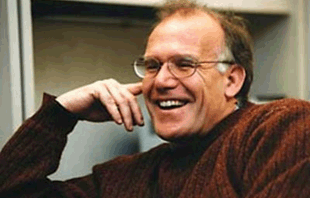Victor Davis Hanson graduated from U.C. Santa Cruz in 1975, receiving a B.A. in Classical Studies with Highest Honors in his major and College Honors from Cowell. Currently, he is the Martin and Illie Anderson Senior Fellow in Residence in Classics and Military History at the Hoover Insititution at Stanford University. In addition, he is Professor Emeritus of Classics at California State University, Fresno, and a syndicated columnist for Tribune Media Services.
Victor Davis Hanson has attracted wide public and scholarly acclaim for his provocative perspectives on the demise of the family farm; the role of the humanities; war and military history; and the global role of the U.S. He is a nationally syndicated columnist for Tribune Media Services, and was awarded the National Humanities Medal in 2007 and the Bradley Prize in 2008. Hanson, who is the fifth successive generation to live in the same house on his family's farm, was a full-time orchard and vineyard grower from 1980 to 1984. He is the author of hundreds of articles, reviews, scholarly papers, and editorials on a wide range of topics and has written or edited 19 books, including Carnage and Culture (2001), a New York Times bestseller.
Hanson's recently released book The Father of Us All: War and History, Ancient and Modern (2010) is an anthology of essays and reviews from the past decade. He also edited Makers of Ancient Strategy: From the Persian Wars to the Fall of Rome (2010), bringing top scholars together to explore warfare, strategy, and foreign policy in the Greco-Roman world.
"UCSC was an anomaly between 1971 and 1975," says Hanson. "In those days, socially, culturally, and politically, campus life was unstructured, anarchistic, pure chaos. Yet educationally, the classics program, especially Greek and Latin language and literature, was traditional, philological, and structured. In other words, a wonderful 19th century Oxford sort of education amid 1970s Northern California. I learned a great deal from that odd marriage, namely that knowledge comes in many forms and that accepted conventions, hierarchy, titles, and certificates are not necessarily a guide to wisdom. At 18 that was a valuable lesson that has stayed with me the last 40 years."

